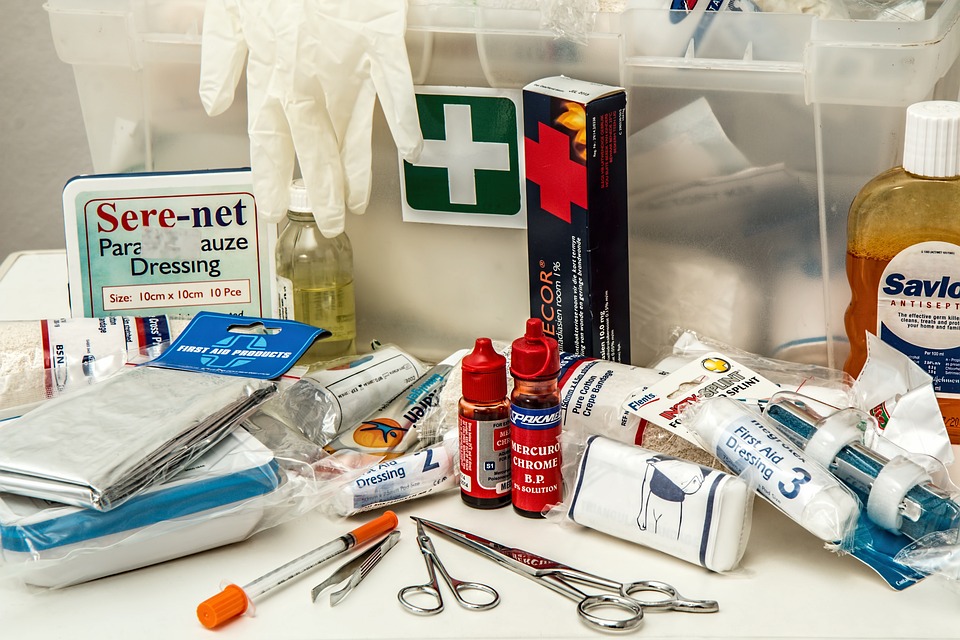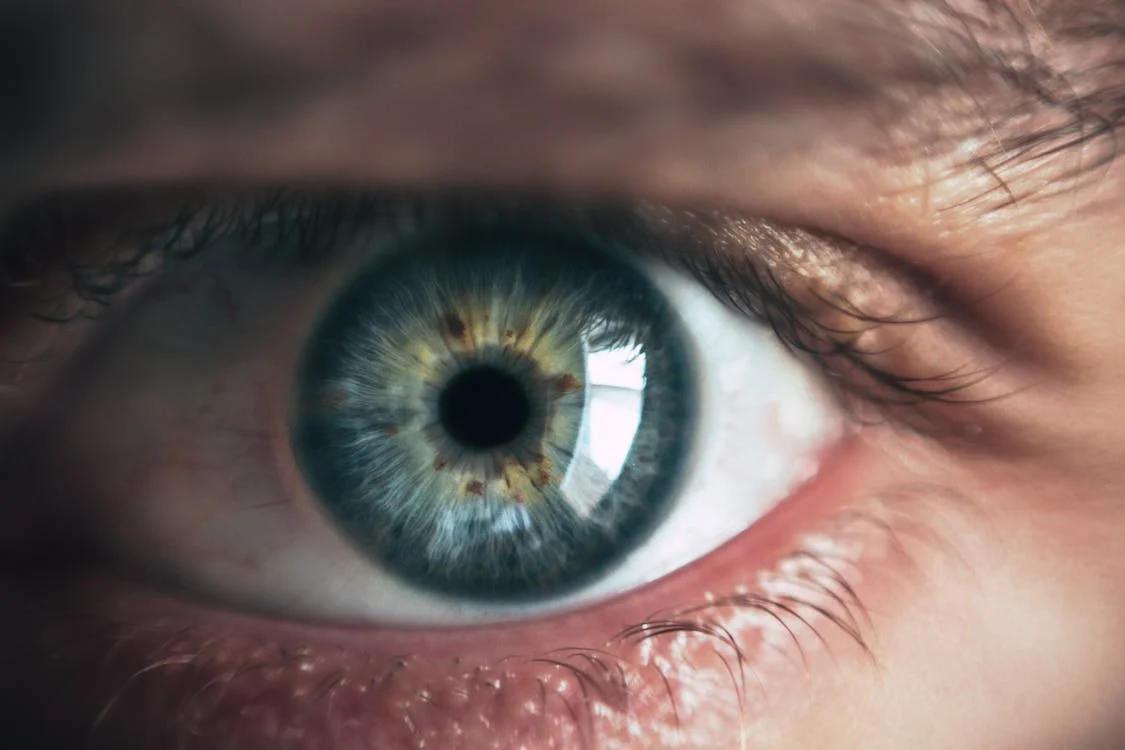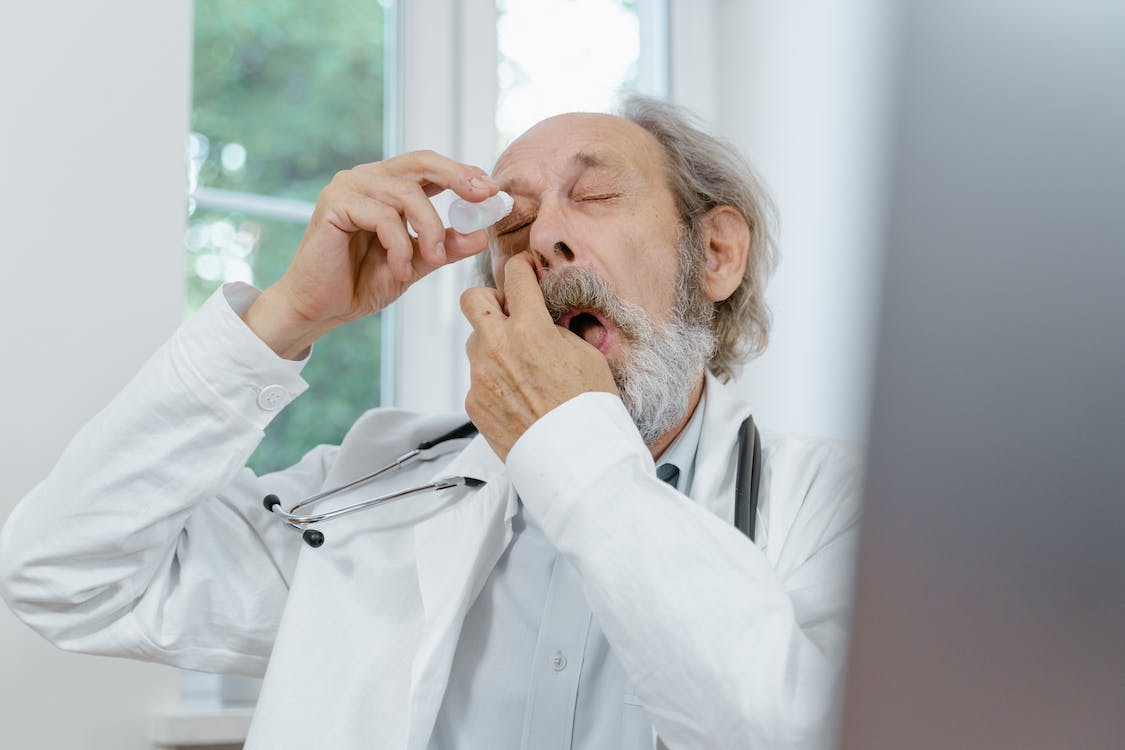Ocular Emergencies, What Should Be Your First Line of Action?
Greetings to all and sundry,
It is a beautiful day today, the days have started on a good note and we are already experiencing lots of rains that can only be interpreted as Blessings that would be coming up this year, let's be optimistic and keep our fingers crossed for all the many good things to come our way. I do hope that you are well and that your days have been good too.

I am coming to your blogs once again today as I have been doing every day and today is no exception, we are going to learn about our eyes, our health, things we ought to do, and things we ought to avoid. Today we are going to learn a little and we would be delving a bit into what we call emergency medicine however this time round we would be looking at the eye as it happens to be my specialty. And so read along and let's learn together.
Introduction
In the field of medicine or healthcare, when we talk about something being an emergency we are looking at a situation that is life-threatening such that if something is not done about it right away then the individual who finds himself in that situation could lose their life. In the same vein, when we come to the eye when we talk about emergency situations then there is the possibility of losing sight if something is not done about it within the shortest possible time.
Unlike systemic cases of emergency which are normally so obvious because the individual may lose consciousness or under some other actions which would bring people's attention to something going wrong to help rush the individual to the hospital, ocular emergencies may depend on you as an individual to know or identify and make haste to save your sight.

The only thing that could help draw one's attention to an ocular emergency is the complaint of not being able to see anymore, this ideally would cause any individual to panic enough to call for help from the nearest individual, friend, neighbor, or sibling to help them reach the nearest health facility. The worrying thing about this feature of identifying ocular emergencies is that vision is lost in ocular emergencies sometimes it ends up being permanent, but sometimes too it is reversed after the emergency care is given.
The most important point at this juncture would be that when we notice these things happening we do not slow down in reaching the nearest health facility for care, most healthcare facilities may have an optometrist or ophthalmologist around, even if they do not or it happens to be in the evening they are not on call, medical doctors or nurses would be able to do something better in helping out and reaching out to the eyecare provider so they could come in to help. So now, let's look at some of these emergencies.
Ocular Emergencies
Let's begin with the most common and obvious one, damage to the eye due to trauma. Any form of trauma to the eye should be considered an ocular emergency, do not say it didn't hurt that much and so I would be fine. People tend to do this a lot with blunt trauma and in the end uveitis sets in and things go haywire, some only come in when they realize they can't see well or anymore, and by the time they come the lens would have already been opaque a traumatic cataract diagnosis.
But the worst forms of trauma ocular emergencies are those that have to deal with liquids, hot objects, acids, and bases. This damage the cells quicker and tend to denature the proteins of the eye. When it comes to acid, this denaturing (something to do with saponification reaction, let me leave this to the biochemists) becomes a good thing to happen because it acts as a barrier that prevents the acids from going further and destroying more tissues and cells.

Whichever the case may be, it is paramount that your first line of action would be to rise the eye with a copious amount of water, we prefer running water to water in a bowl or basin, it helps carries the liquid away, does not try to use the opposite compound to try and neutralize right away as the effect could be quite detrimental or even fatal. Do not try to add an acid to base damage right away, it is the absolute wrong move and extreme hot meeting extreme cold could literally cause an explosion and so be careful with that too.
After the rise please rush to the nearest eye care or health facility to the extent of damage to the assessed and the necessary treatment is given to salvage what can be saved. The other emergency situation which I have encountered once is a situation known as corneal perforation. What happens is that the cornea which is the transparent layer over the black part of the eye you see when looking into the eyes of your friend, gets perforated literally and its contents start to ooze out.
It is considered an ocular emergency because the perforation would have to be sealed as soon as possible to prevent the continuous leakage of the content of the anterior chamber. Should this continue to go on, the pressure within the eye will continue to drop until there's not enough pressure to hold or support the eye anymore, and it may collapse on itself at which point we may be heading to the point of no return.
The best thing you can do in this situation is to close your eye and keep very gentle pressure on them with the help of your handkerchief or pad whiles you find your way to the nearest health facility. You may need an emergency procedure performed by the ophthalmologist as he or she patches the hole or close it up with a special glue, this would depend on the location of the perforation though. But the most important thing is to not delay in seeking out care or help.
The other emergency I would talk about is a situation or condition known as retinal detachment. It is considered an emergency because when the retina gets detached the cells lose their source of ATP and nutrition from the layers behind it namely the choroid and when this happens they cannot survive for long, only a few minutes or hours and these are cells that when they die nothing can be done about it and vision is gone for good.

One thing that can guide you is that it is mostly preceded by the seeing of lightning in your vision and sometimes floaters. Then there would be a sudden painless loss of vision in the affected eye. If you notice these lightning and floaters it would be advisable to seek care ahead of time to be on the safe side, because whiles that symptom sometimes is a senile process of vitreous liquefaction, sometimes it is a sign that comes before retinal detachment and you have just ended up saving your sight.
Now we cannot exhaust all the ocular emergency cases or situations however I believe what I have talked about today is good enough to get us going, we would continue with the emergency cases as the days go by so we could learn more however I think I should wrap it up here before it becomes a boring and too lengthy read for my readers.
Conclusion
Remember ocular emergencies are sight-threatening and vision loss is difficult to regain, on most occasions it is irreversible. If you experience any sudden painful or painless loss of vision then I reckon that you treat it as an ocular emergency and rush to the nearest eye facility or health facility for care to be done and also that your eyes or sight may be saved.

Please remember to avoid over-the-counter medication without thorough examination, have regular checkups, and when in doubt always consult a professional preferably an Optometrist or an Ophthalmologist for clarification. A stitch in time saves nine, it is always better safe than sorry, life is precious, sight is a beautiful thing, and love your eyes. Thanks for your time and be safe, cheers!
Further Reading
Pokhrel, P. K., & Loftus, S. A. (2007). Ocular emergencies. American family physician, 76(6), 829–836..
Hodge, C., & Lawless, M. (2008). Ocular emergencies. Australian family physician, 37(7), 506–509..
Hötte, G. J., & De Keizer, R. O. B. (2021). Ocular Injury and Emergencies Around the Globe. Atlas of the oral and maxillofacial surgery clinics of North America, 29(1), 19–28. https://doi.org/10.1016/j.cxom.2020.11.002.
Tarff, A., & Behrens, A. (2017). Ocular Emergencies: Red Eye. The Medical clinics of North America, 101(3), 615–639. https://doi.org/10.1016/j.mcna.2016.12.013
Sight is indeed a beautiful thing. The eye is our window to the World and no one will want to lose it.
The eye is a very delicate organ and any trauma to it should be taken very seriously no matter how minor it may look.
Thanks for the quality content and educative post.
Thank you too for reading and for your time, it is very much appreciated
Wow, this post has made me think a lot. Particularly ophthalmology is.an area that I respect a lot, an ophthalmologic emergency is something that I would not.guataria attend, as it is usually very delicate, and I know that can.mark an absolute before and after in the person.
But it is true, you have to use logic in those moments, especially being out of a hospital, washing the eye will always be the first thing, no water with substances of any kind. Thank you very much for this little "emergency guide".
Ophthalmologic emergencies are always something that health personnel are particular about, you could literally determine whether a person get to see again for the rest of their lives and so i totally understand you.
Maybe you should consider joining us in the eyecare specialty in the future?
Thanks for your contribution to the STEMsocial community. Feel free to join us on discord to get to know the rest of us!
Please consider delegating to the @stemsocial account (85% of the curation rewards are returned).
Thanks for including @stemsocial as a beneficiary, which gives you stronger support.
Interesting
!1UP
You have received a 1UP from @gwajnberg!
@stem-curator, @neoxag-curator
And they will bring !PIZZA 🍕.
Learn more about our delegation service to earn daily rewards. Join the Cartel on Discord.
I gifted $PIZZA slices here:
@curation-cartel(7/20) tipped @nattybongo (x1)
Please vote for pizza.witness!